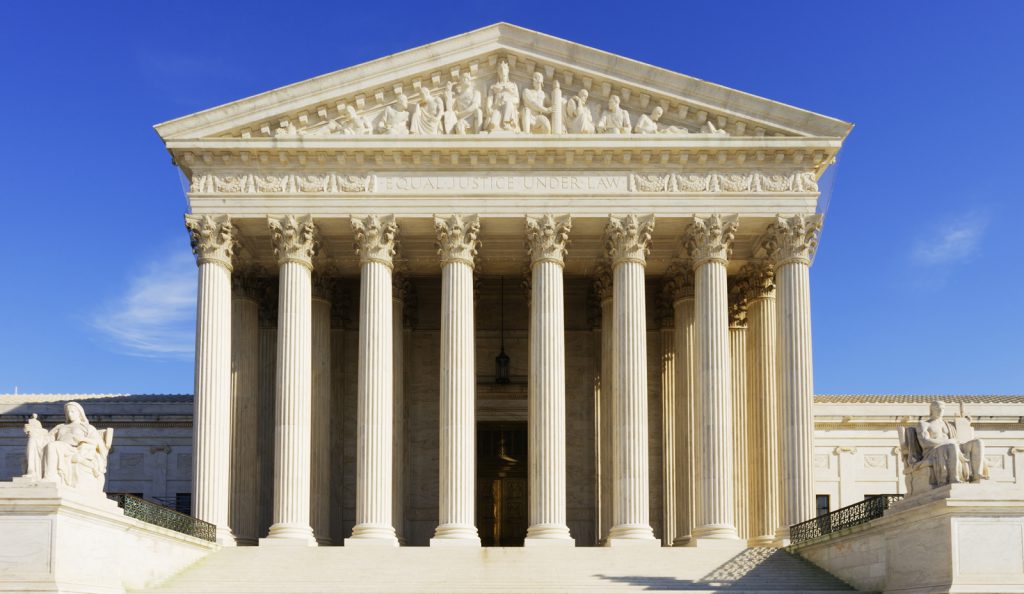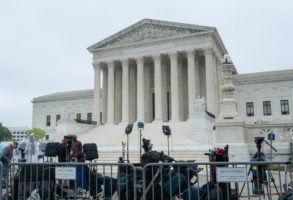
Published January 15, 2015
In remarks on Tuesday, Senator Rand Paul undertook to defend “judicial activism” and to criticize “judicial restraint.” Evan Bernick of the Institute for Justice praises Paul’s remarks in an NRO essay today titled “Rand Paul Is Right: Judicial Restraint Is Wrong.” I’d like to explain here why I disagree with Paul and Bernick.
Discussions about judicial activism and judicial restraint often suffer from semantic confusion, so I’d like to start by setting forth my own usage and some related observations:
1. The core of judicial activism consists of the wrongful overriding by judges of democratic enactments or other policy choices made through the processes of representative government. Roe v. Wade, with its invention of a constitutional right to abortion, is a classic example.
2. Judicial activism is one distinct category of judicial error. The wrongful failure to enforce constitutional rights, or to enforce constitutional limits on governmental power, is another distinct category. I call this second category judicial passivism.
3. Judicial restraint, in contrast to judicial activism, involves courts’ not striking down democratic enactments that have not been shown to violate the Constitution. The central concern that the terms signal is that in our system of separated powers and representative government there are limits on the power of the courts.
4. It is unhelpful and confusing to use the term judicial activism to refer to any invalidation of a statute or regulation — i.e., irrespective whether that invalidation is right or wrong. I’m reminded of William F. Buckley’s response to the Left’s charge during the Cold War that the CIA and the KGB were engaged in morally equivalent acts of spycraft. As Buckley put it, that’s like “saying that the man who pushes an old lady into the path of a hurtling bus is not to be distinguished from the man who pushes an old lady out of the path of a hurtling bus: on the grounds that, after all, in both cases someone is pushing old ladies around.” Likewise with judicial activism: It is essential to try to distinguish between sound and unsound exercises of judicial power.
5. Any judgment as to whether particular constitutional rulings qualify as improper judicial activism or as proper invalidations of unconstitutional democratic enactments necessarily depends on an underlying theory of how judges should interpret the Constitution. Ditto for the distinction between instances of judicial restraint and of judicial passivism.
6. Modern judicial conservatives (like many libertarians) generally embrace originalism as the correct methodology of constitutional interpretation. Principles of judicial restraint play a supplemental role: They call for judges not to overrule democratic enactments when the originalist case against those enactments isn’t sufficiently clear.
With this backdrop, let’s consider Senator Paul’s remarks (twelve-minute video available here).
It turns out that Paul (in evident disagreement with my proposition 3) uses the term “judicial activism” to describe any judicial decision that strikes down a democratic enactment and uses the term “judicial restraint” to describe any judicial decision that leaves a democratic enactment in place. Paul is of course free to use terms as he wishes, but his usage creates a lot of confusion. There is no one, or nearly no one, who thinks that it is never legitimate for a court to invalidate democratic enactments. So by Paul’s usage we’re all judicial activists.
Paul asks, “What happens when a legislature does bad things?” and he asserts, “If the states do wrong, then we [the courts] should overturn them.” So he seems to think that there are few if any limits on the power of judges to impose their will to override democratic enactments that they think do “bad things” or “wrong.” Indeed, he tepidly manages to say of Roe v. Wade only that the case for it isn’t “as clear-cut” as the case for Griswold v. Connecticut. And he says not a word against the ongoing judicial redefinition of marriage. (Paul supported the Supreme Court’s decision against the federal Defense of Marriage Act, saying, confusedly, that the issue of marriage — in ABC News’s paraphrase — “should be left to the states.” But he’s now undermined his ability to oppose judicial overriding of state marriage laws.)
Paul shows no interest in the separation-of-powers concerns that animate a sound understanding of judicial restraint. Indeed, he mentions separation of powers for the first time (around the nine-minute mark) only when he pivots to attack the Obama administration.
Bernick’s defense of Paul’s remarks also fails.
Bernick does not acknowledge that, for judicial conservatives, judicial restraint merely supplements originalist methodology. He blames judicial restraint for undermining “constitutionally limited government” when it was instead the progressive abandonment of originalist principles that was responsible. Far from embracing originalism, Bernick can’t even bring himself to condemn the Warren Court’s excesses and instead refers only to its “alleged ‘activism.’” He somehow finds controversial Robert Bork’s elementary observation that the Constitution leaves “vast areas of life” to the realm of representative government. And, focused myopically on the Institute for Justice’s sympathetic clients, he thinks that “reflexive judicial deference to the political branches of government is the rule” — and the problem.
Bernick tries to recast Paul’s candid embrace of “judicial activism” in the camouflage of “judicial engagement.” But there’s good reason that Senator Paul discovered that he was making a “tough sell” to an audience of conservatives: He is peddling a defective product.
— Edward Whelan is president of the Ethics and Public Policy Center and a leading contributor to National Review Online’s Bench Memos blog.








